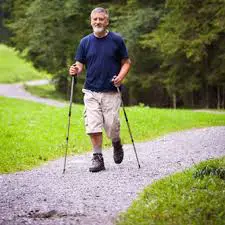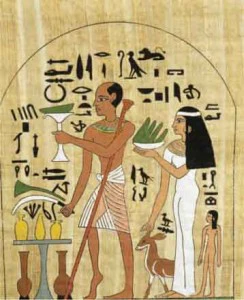Parkinson’s disease or Primary Parkinsonism . A neurodegenerative disorder due to death of brain cells producing dopamine. Idiopathic Parkinsonism. At Astang Ayurveda , available High standard of Parkinson’s disease ayurvedic treatment with herbal medicines that may able to cure this disease.

What is Parkinson’s disease ?

Parkinson’s disease is a neuro degenerative disease that affects the movement. It takes place as a result of less dopamine secretion in the brain. It happens as a result of death of the brain cells secreting dopamine.
Dopamine is a chemical that helps in conduction of message from substantia niagra to other parts of the brain. This process helps controlling the movement of the body. A decrease in the secretion of dopamine hampers the motor action that controls the movement.
Parkinson’s disease is otherwise called Idiopathic Parkinsonism, Primary Parkinsonism, Hypokinetic rigid syndrome, Paralysis agitans, Parkinsonism, Parkinson’s syndrome etc.
Parkinson’s disease is not considered to be fatal. But some of its complications may lead to death. The onset of the disease and its complications are a set of gradual process.
Although, Parkinson’s disease is supposed to be a movement disorder some non- motor types of disorders like sensory dysfunction, cognitive disorder, disturbed sleep are observed.
Parkinson’s disease | History:
Parkinson’s disease can be compared with Kampa vata as narrated in Ayurveda.Vepathu, Kampavata, Siro Kampa etc are considered to be parallel to PD. Indian history is the witness of lots of cases of the disease. Ayurveda is packed with lots of medicines and treatment principles to manage kampavata and other shaking palsies.
World history is also not behind regarding the approach towards the disease. The rich medical history of Egypt have descriptions of signs and symptoms Parkinsonism.
This is “Galen” from the western countries, who described the disease under the name shaking palsy in 175 AD.

James Parkinson
In 1817 Dr James Parkinson, documented and compiled signs and symptoms together over the subject Shaking Palsy. They are resting tremor, reduced muscle strength & paralysis, abnormal gait and posture, the progress of the disease. Later on Dr Jean-Martin Charcot renamed the disease as Parkinson’s disease.
Written by: Dr A P Nayak on Dt 17.3.2016
You can Contact our Astang Ayurveda hospital at Bhubaneswar, India.
For inquiry, Call us;
Call Now - 70081 76012
Call Now - 0674-2352797
or Mail us;
info@astangayurveda.com
drapnayak@gmail.com
Get Directions to Our Location on the Map
What is Parkinson’s disease?
Parkinson’s disease is a neurodegenerative disorder that primarily affects movement. It occurs due to a reduction in dopamine production in the brain, which leads to motor function impairment such as tremors, stiffness, and difficulty in movement.
What causes Parkinson’s disease?
Parkinson’s disease is caused by the death of dopamine-producing brain cells in a region called the substantia nigra. The exact cause of this cell death is still unknown, but it is thought to be a combination of genetic and environmental factors.
What are the symptoms of Parkinson’s disease?
Symptoms include resting tremors, slow movements (bradykinesia), muscle stiffness, impaired posture, difficulty walking, and non-motor symptoms such as cognitive decline, sleep disturbances, and sensory dysfunction.
Is Parkinson’s disease fatal?
Parkinson’s disease itself is not fatal, but its complications, such as difficulty swallowing or respiratory issues, can lead to life-threatening conditions.
How is Parkinson’s disease viewed in Ayurveda?
In Ayurveda, Parkinson’s disease is compared to “Kampavata,” a disorder caused by Vata dosha imbalance. Ayurvedic treatments aim to balance Vata and restore motor functions using herbal medicines, Panchakarma therapies, and lifestyle adjustments.
What Ayurvedic treatments are recommended for Parkinson’s disease?
Ayurvedic treatments for Parkinson’s include Panchakarma therapies like Abhyanga (oil
massage), Basti (medicated enema), Shirodhara, and herbal formulations that help improve nerve function, balance doshas, and enhance overall well-being.
Can Ayurveda cure Parkinson’s disease?
While Ayurveda cannot cure Parkinson’s disease, it can effectively manage symptoms, slow disease progression, and improve the patient’s quality of life through personalized treatments and therapies.
What are some common herbs used in Ayurveda for Parkinson’s disease?
Ayurvedic herbs such as Ashwagandha, Brahmi, Shankhpushpi, and Mucuna Pruriens (Kapikachhu) are commonly used to manage the symptoms of Parkinson’s. These herbs help improve cognitive function, reduce tremors, and strengthen the nervous system.
What is the role of Panchakarma in Parkinson’s disease management?
Panchakarma therapies help detoxify the body, improve nervous system health, and restore balance to the Vata dosha, which is essential for managing motor symptoms in Parkinson’s patients.
How can family support help in managing Parkinson’s disease?
Family support plays a vital role in managing Parkinson’s disease. Emotional support, encouragement, and assistance with daily activities help the patient cope with both the physical and emotional challenges of the disease, improving overall recovery and quality of life.




